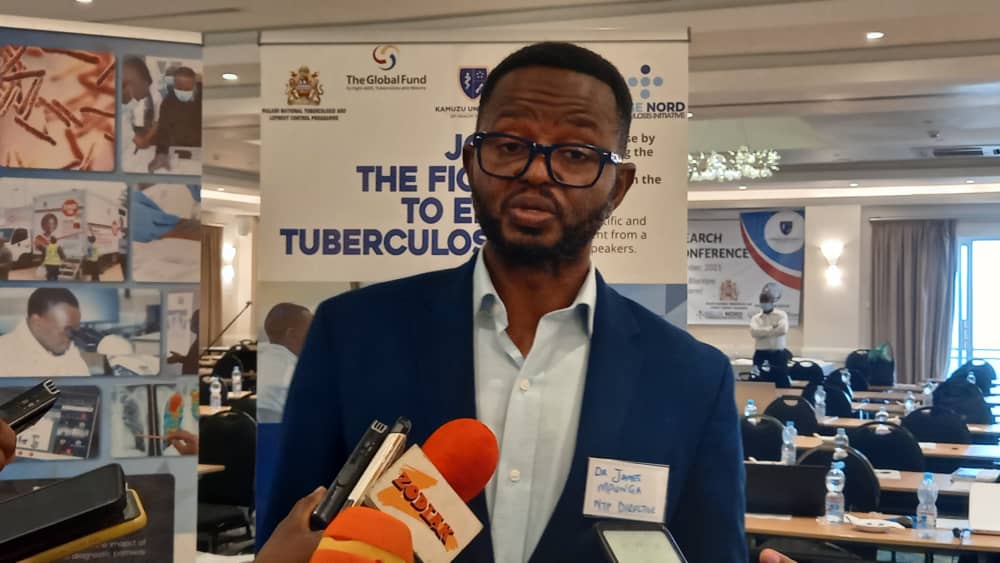Malawi making strides in TB fight
Malawi is making huge strides in the fight against Tuberculosis (TB), the National TB Control Programme (NTP) has said.
Speaking on Thursday, at the opening of a two-day 2021 TB networking conference in Blantyre, NTP programme director James Mpunga said over the past five years Malawi has achieved a 90 percent treatment success rate for Tuberculosis as recommended by the World Health Organisation.
Statistics by NTP show that incidences of tuberculosis in Malawi fell gradually from 191 cases per 100,000 people in 2015, to 133 cases per 100,000 people in 2020.
Mpunga said Malawi has also managed to maintain the drug resistant levels by keeping the levels constant at around six percent.
“This is good news because drug resistant TB is very difficult to treat and if not managed well it can progress to another form of TB which is extensively drug resistant,” said Mpunga.
There is an estimated 27 000 new cases of TB in Malawi with a case fatality ration of 27 percent.
NTP is now using mobile diagnostic units to reduce new infection by making sure that more people get tested for TB and start getting treatment early before infecting others with the disease.
Commenting on the meeting , Kamuzu University of Health Sciences (Kuhes) epidemiologist Marriott Nliwasa, who is also one of the leaders spearheading TB research in the country, said the conference aims to bring together researchers, Ministry of Health officials and other stakeholders to share knowledge on how to find the best ways to care for TB patients in Malawi.
“Research is an important pillar in the fight against TB because it helps us find new ways and innovation of dealing with diseases such as TB,” he said.

The meeting further provides an opportunity for stakeholders in the TB fight, to showcase diverse selection of ongoing research in Malawi, strengthen the existing Malawi TB Research Network, building on previous initiatives and new opportunities.
Participants will also map key research priorities for the next 5 to 10 years in line with the END TB strategy, identify available funding to support TB Research, plan for future sustainability as well as create sustainable platforms for training in tuberculosis research.





